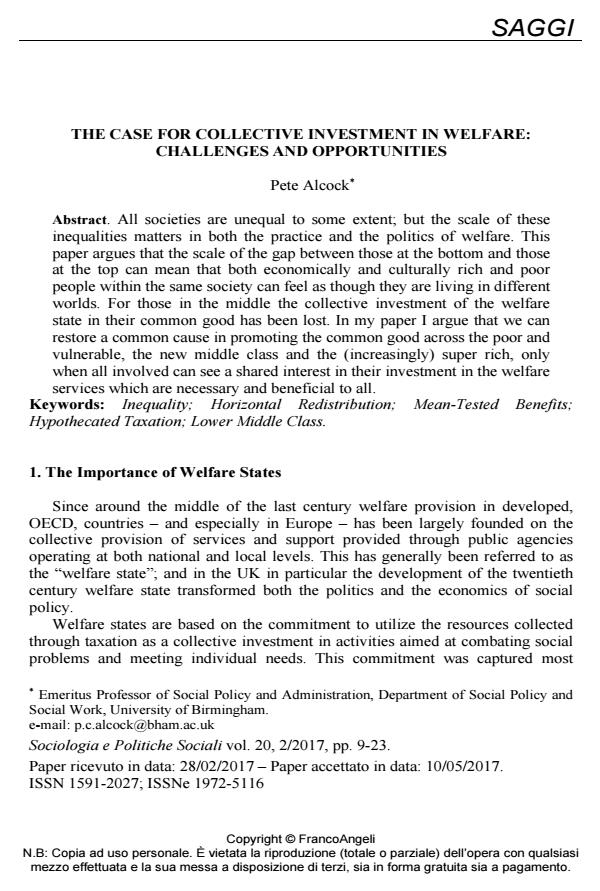The case for collective investment in welfare: challenges and opportunities
Titolo Rivista SOCIOLOGIA E POLITICHE SOCIALI
Autori/Curatori Pete Alcock
Anno di pubblicazione 2017 Fascicolo 2017/2
Lingua Inglese Numero pagine 15 P. 9-23 Dimensione file 239 KB
DOI 10.3280/SP2017-002002
Il DOI è il codice a barre della proprietà intellettuale: per saperne di più
clicca qui
Qui sotto puoi vedere in anteprima la prima pagina di questo articolo.
Se questo articolo ti interessa, lo puoi acquistare (e scaricare in formato pdf) seguendo le facili indicazioni per acquistare il download credit. Acquista Download Credits per scaricare questo Articolo in formato PDF

FrancoAngeli è membro della Publishers International Linking Association, Inc (PILA), associazione indipendente e non profit per facilitare (attraverso i servizi tecnologici implementati da CrossRef.org) l’accesso degli studiosi ai contenuti digitali nelle pubblicazioni professionali e scientifiche.
All societies are unequal to some extent; but the scale of these inequalities matters in both the practice and the politics of welfare. This paper argues that the scale of the gap between those at the bottom and those at the top can mean that both economically and culturally rich and poor people within the same society can feel as though they are living in different worlds. For those in the middle the collective investment of the welfare state in their common good has been lost. In my paper I argue that we can restore a common cause in promoting the common good across the poor and vulnerable, the new middle class and the (increasingly) super rich, only when all involved can see a shared interest in their investment in the welfare services which are necessary and beneficial to all.
Parole chiave:Inequality; Horizontal Redistribution; Mean-Tested Benefits; Hypothecated Taxation; Lower Middle Class
Pete Alcock, The case for collective investment in welfare: challenges and opportunities in "SOCIOLOGIA E POLITICHE SOCIALI" 2/2017, pp 9-23, DOI: 10.3280/SP2017-002002